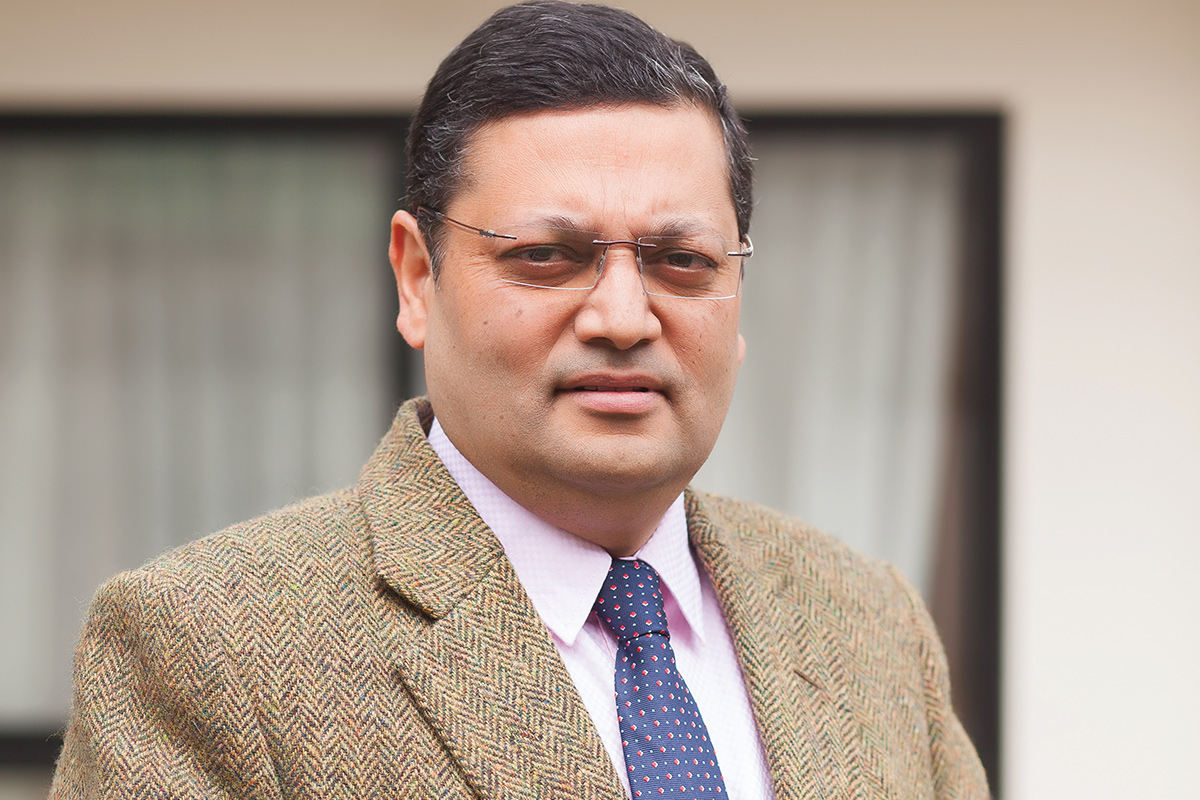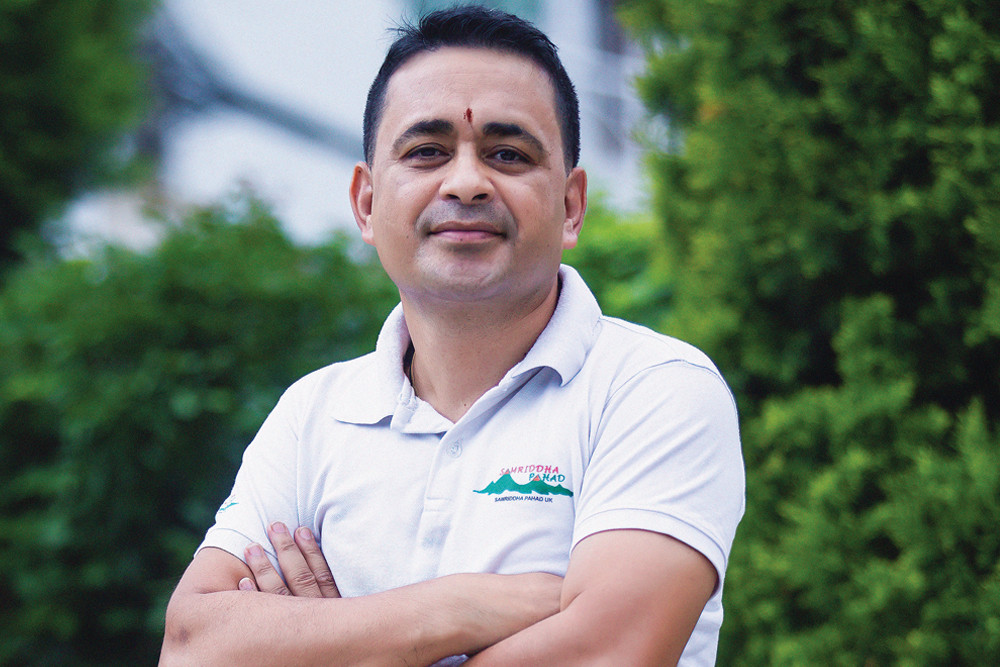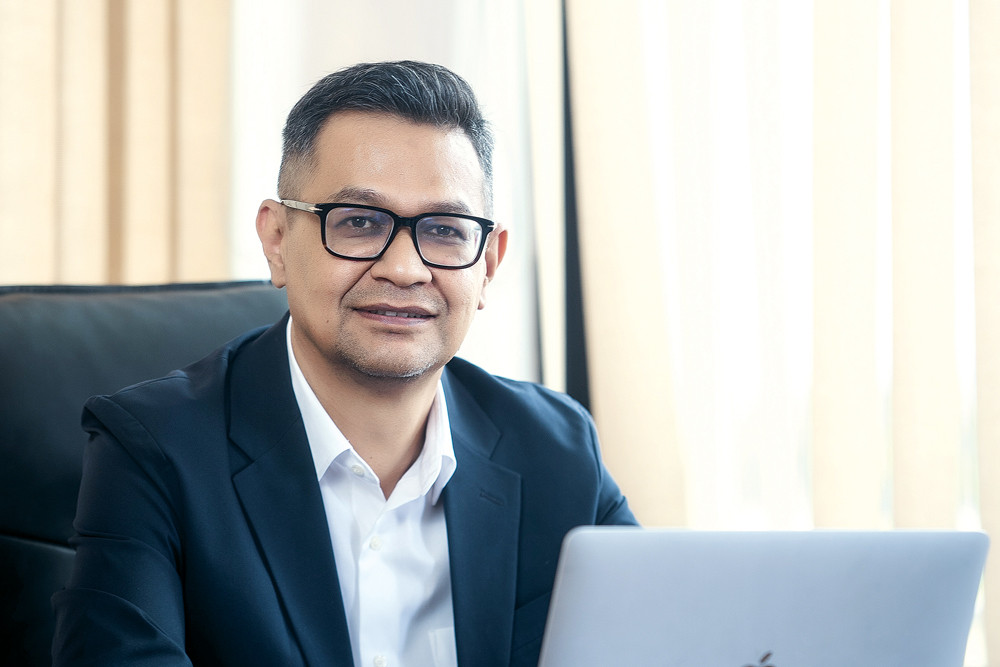
Nicholas Pandey is the Executive Director of Kalika Construction Pvt Ltd of the Kalika Group. Founded in 1976, Kalika Construction aims to offer complete and comprehensive construction services which cover civil engineering works, electrical and hydropower projects
He is also the Managing Director of Kalika Energy, Executive Chairman of AAC Itta, Vice President of Federation of Contractors Associations of Nepal (FCAN) and Vice President of International Federation of Asia and Western Pacific Contractors Associations (IFAWPCA).
Pandey completed his MBA from Copenhagen Business School. B360º talked to him about Kalika’s projects and his thoughts on leadership. Excerpts:
What is your definition of leadership?
Leadership for me is to be able to lead a team by understanding its members, listening to their thoughts and ideas, and at the end making them believe in you.
What are the attributes needed to be a good leader?
In my opinion, one has to be a good listener, should be able to follow emotional intelligence while making certain decisions and at the same time be able to stand up for one’s decision.
Any unique project Kalika Construction has done for the first time in Nepal?
There are plenty, but the one I can remember is the award-winning single span ‘steel truss bridge’’ project funded by DFID. This bridge connected Dhankuta with Bhojpur for the first time with a motorable bridge and is the longest single span steel truss bridge in South Asia.
What exactly is the status of construction and construction companies in Nepal?
Nepal is an underdeveloped country and like all underdeveloped and developing countries, infrastructure development is the key for economic boom. Hence, I would say that Nepal has a very good scope in the construction industry for years to come. However, lack of skilled manpower and slow development in this sector due to various factors has held it back.
 A contractor cannot possibly win every contract. How did you learn to move on?
A contractor cannot possibly win every contract. How did you learn to move on?
First of all, the construction business is a very tough business, especially in Nepal. One has to cope with public disturbances, hooliganism and other negative inputs of the society on a daily basis. Diversification or backward integration into other faculties of the construction industry could be one way to move on.
What is the most important leadership lesson you have learned?
To quote the great philosopher Confucius, “He who learns but does not think is lost! He who thinks but does not learn is in great danger”. So, I have yet to learn a lot.
According to you, is leadership an in-born trait or is it something that can be learned and acquired?
This is a debatable subject and I have not yet come to a conclusion. However, I think everyone has some kind of inborn attributes of leadership in them and academics can help them harness those traits.
What are your priorities in life?
I hope to become a happy man by balancing my work, social and family life.
What is the future of construction business in Nepal?
It has a long way to go, but the way is very prosperous given there is a good environment to foster it.
What are the constant challenges construction companies have to face in Nepal?
At the moment with a lot of people going abroad, we have an acute shortage of skilled manpower. Even though we have some domestic supply of cement and reinforcement (steel), the prices shoot up during the working season. This hampers the cost of construction. The households that have been prepared to rebuild their homes after the earthquake are severely hit by this crisis.
The other main ingredients of construction, river and quarry sand and aggregates are abundant in Nepal but due to improper regulations, it is only extracted by few people hence making it scarce and expensive for the public.


.jpg)


.jpg)